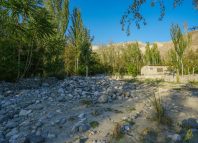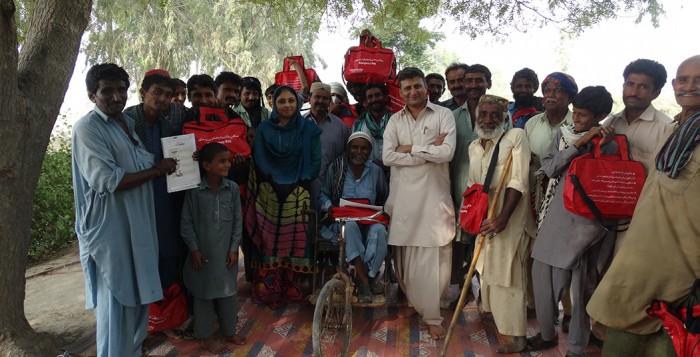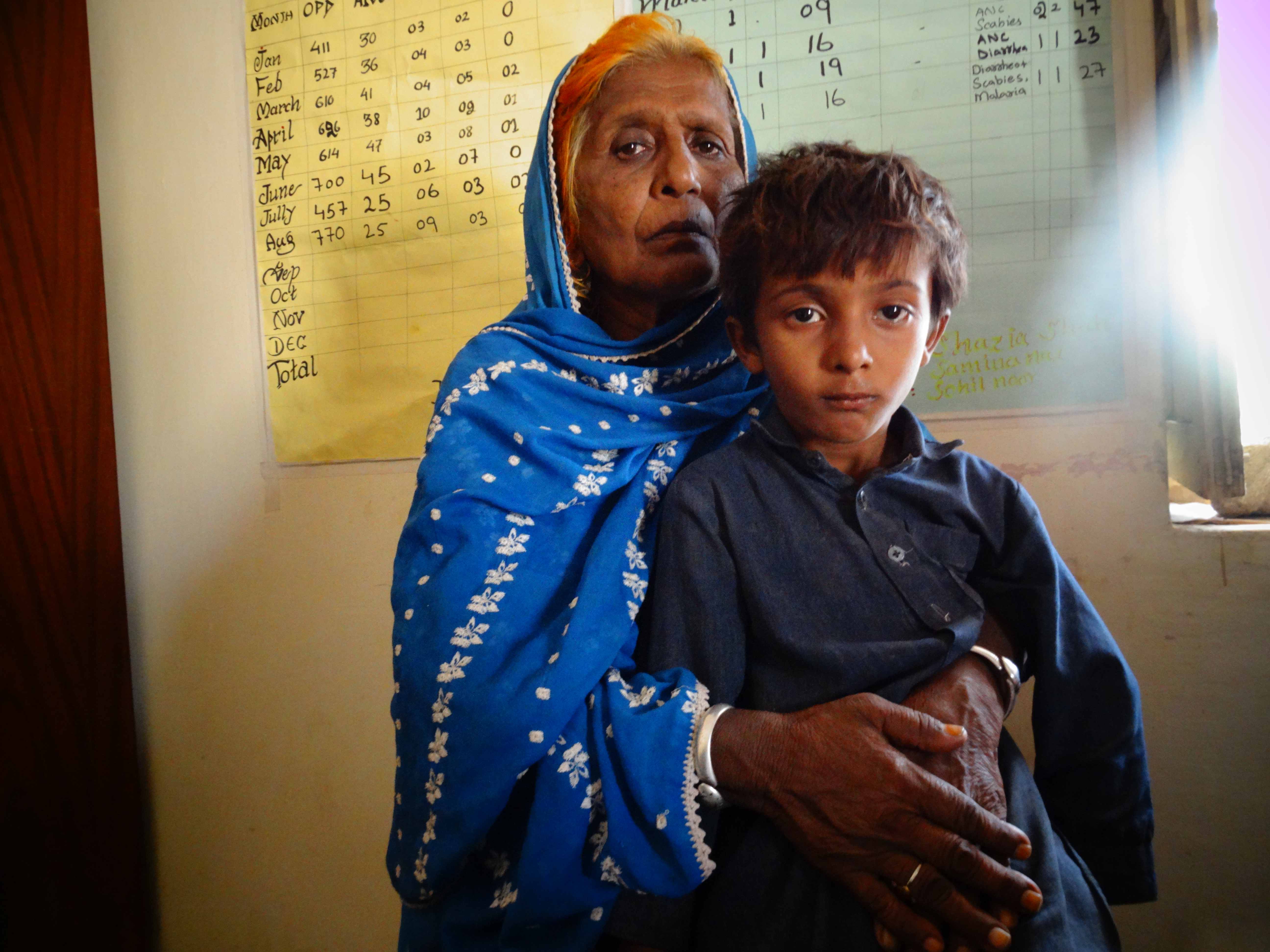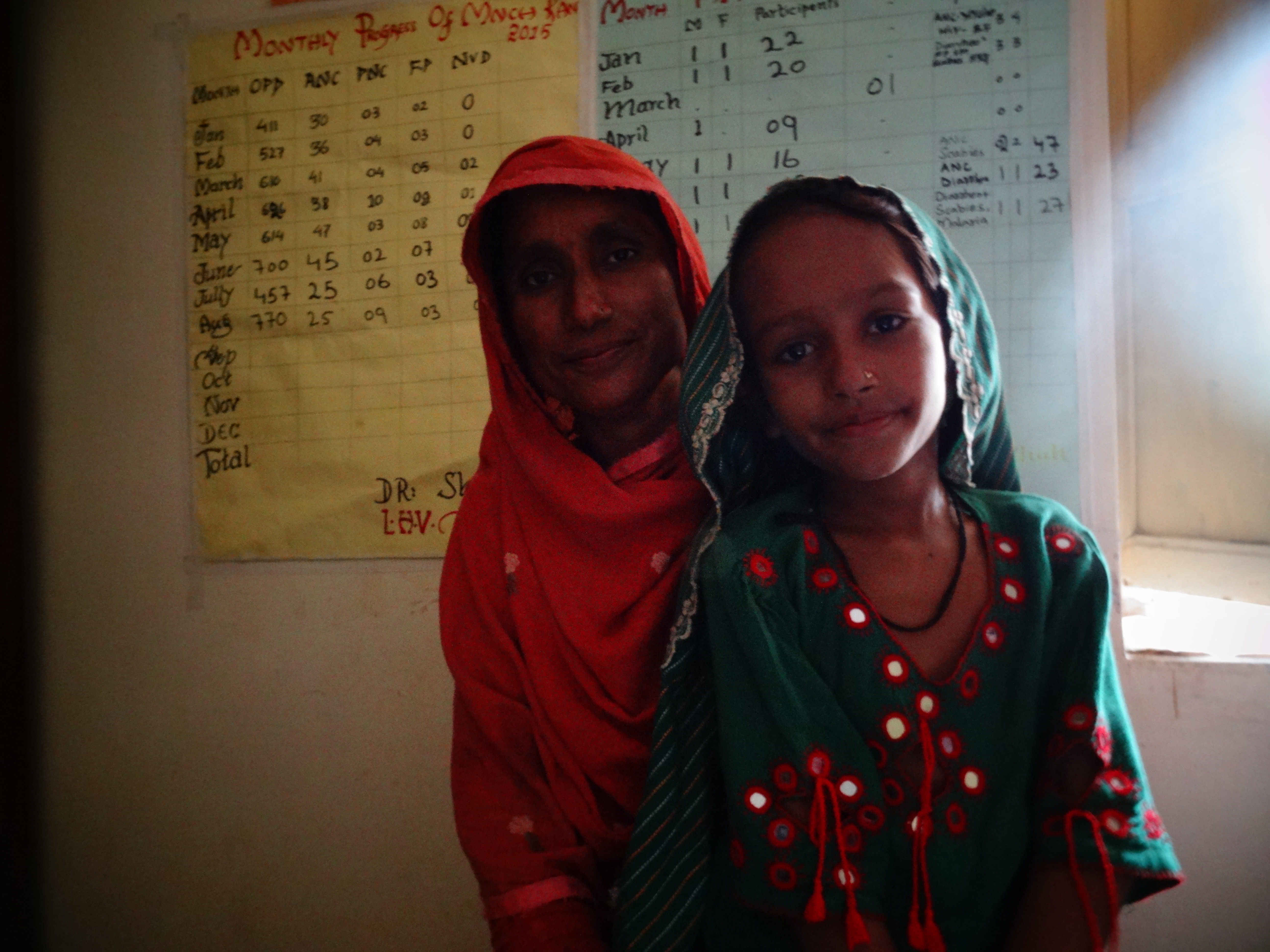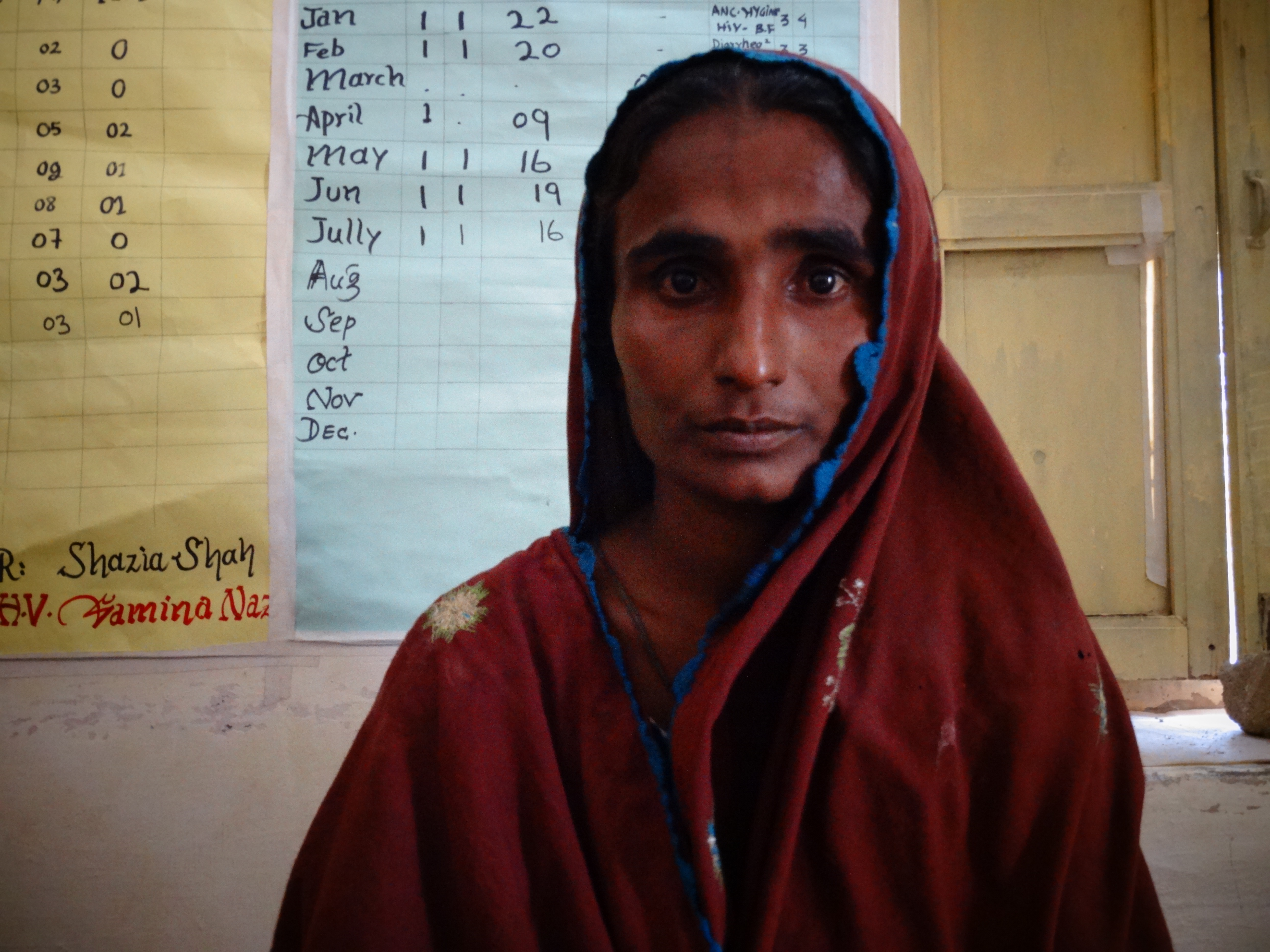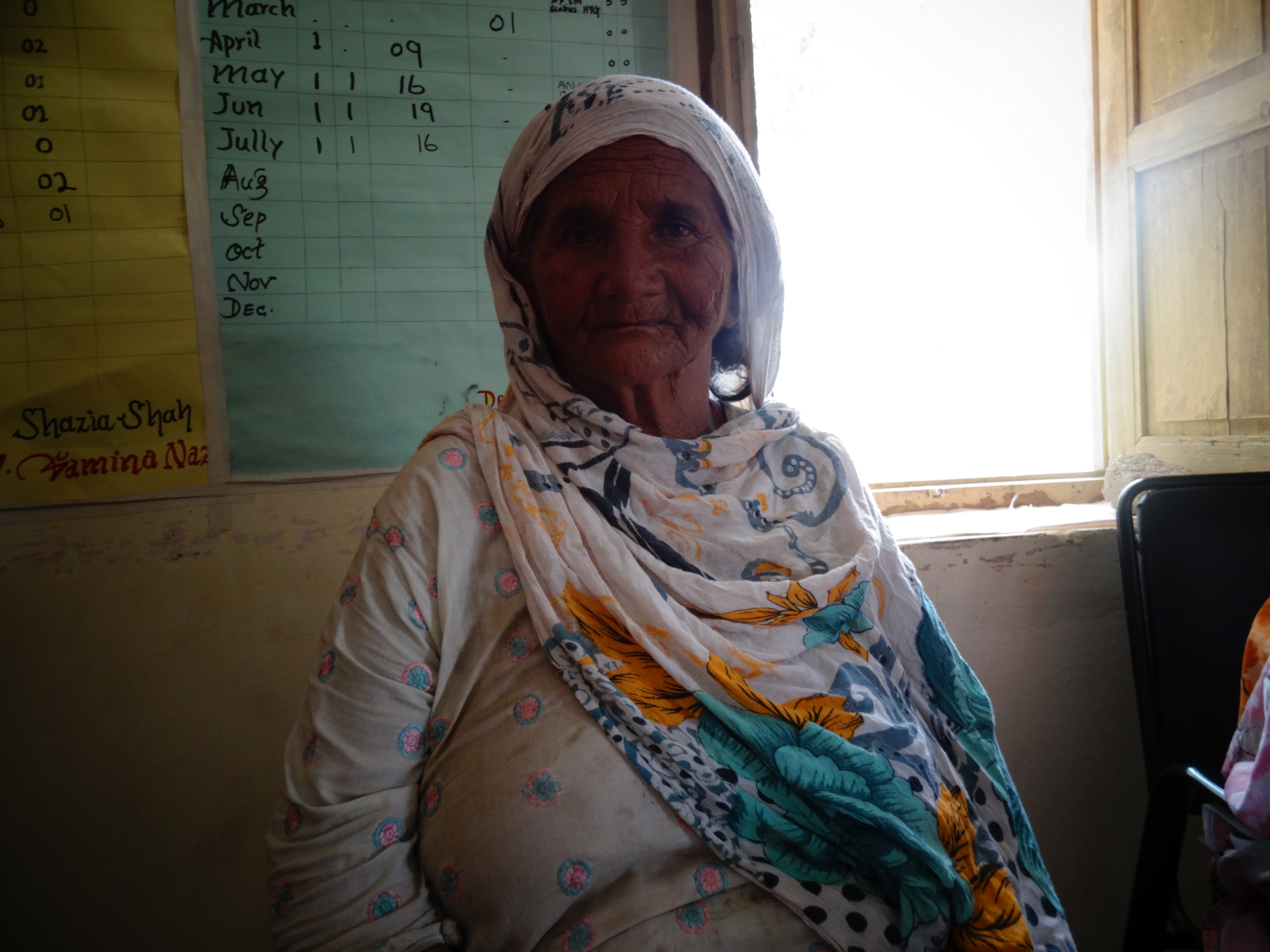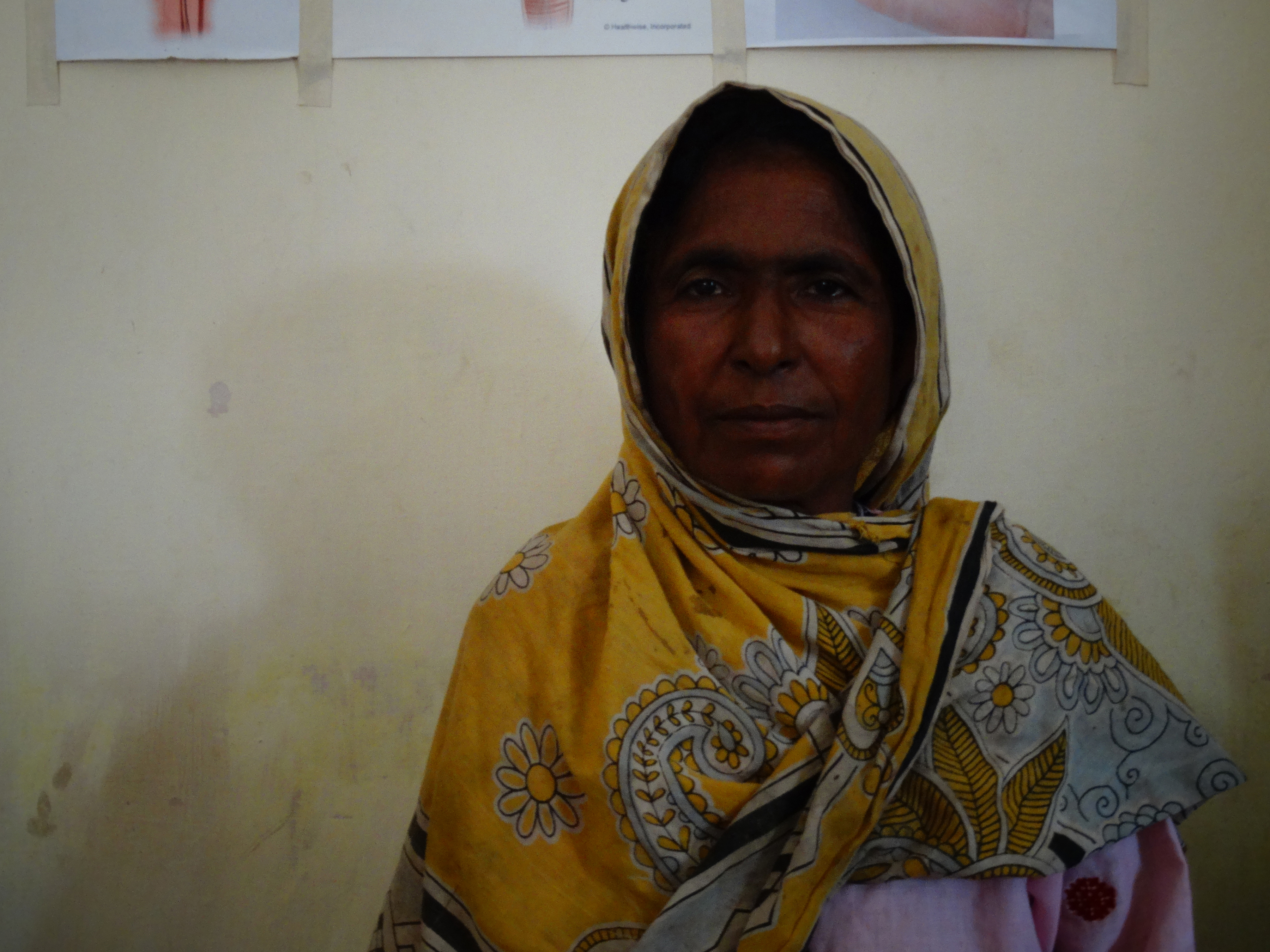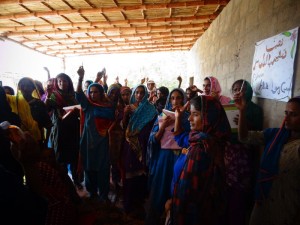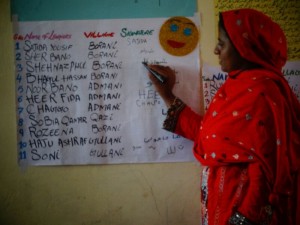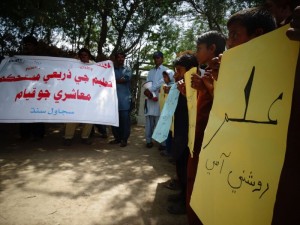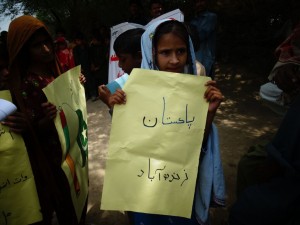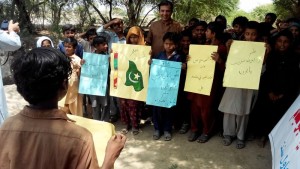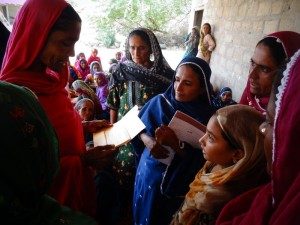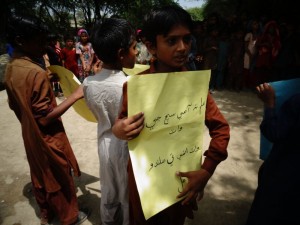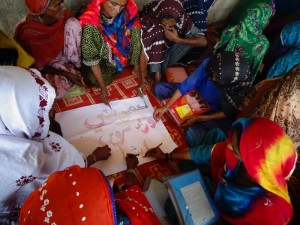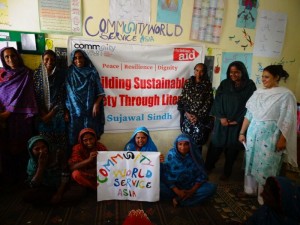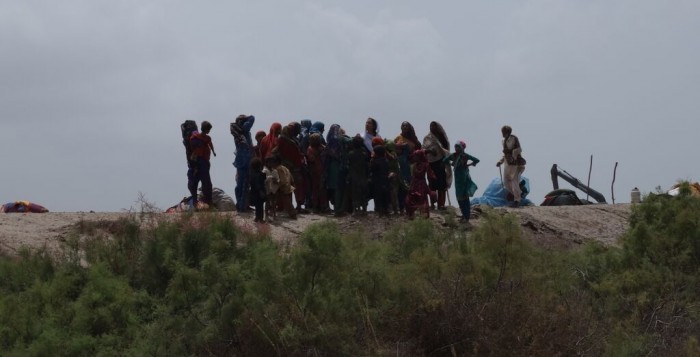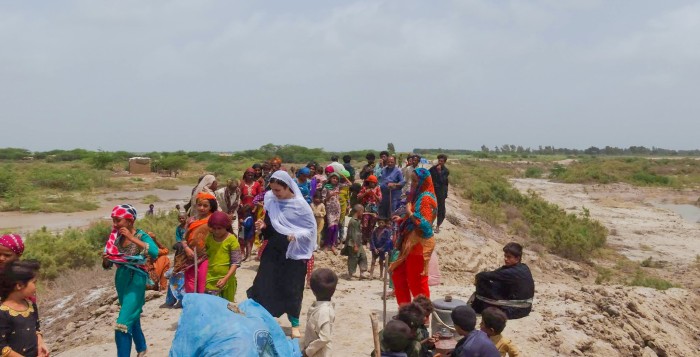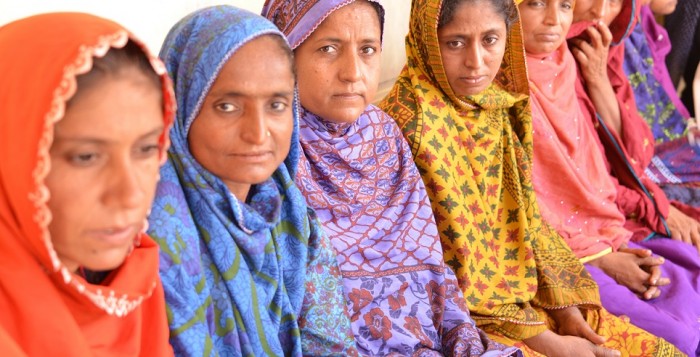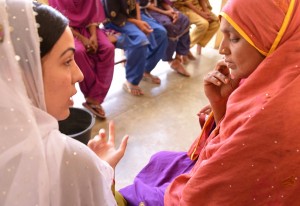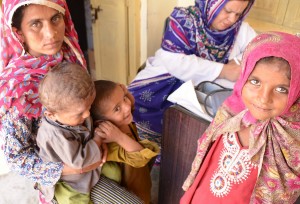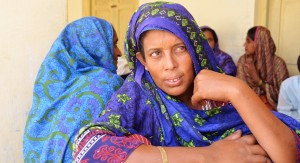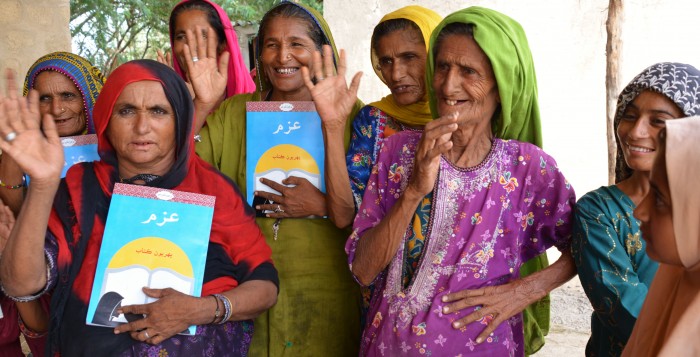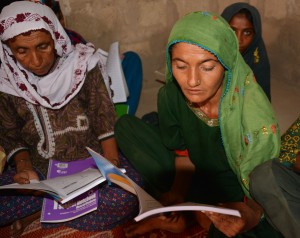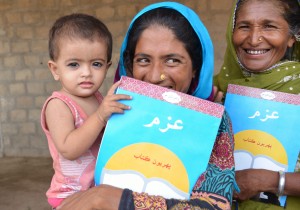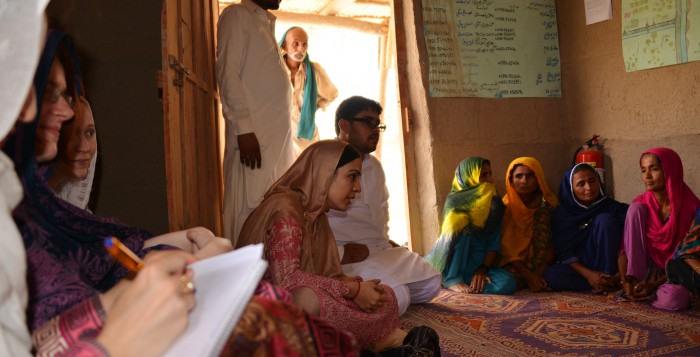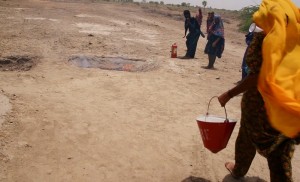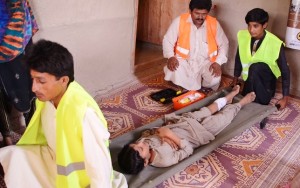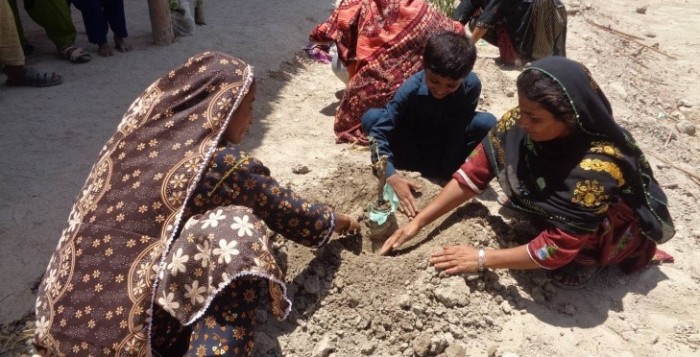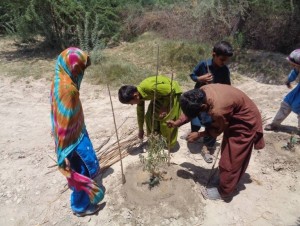This month, Community World Service Asia has conducted disaster risk reduction sessions for 150 men and women from six Community Organizations in the hazard-prone area of Thatta, Sindh province. Community Based Disaster Risk Management trainings are conducted through our innovative Mobile Knowledge Resource Center, which engages community members in disaster preparedness skills. These trainings are bringing vital knowledge to vulnerable communities, and empowering them to build their resilience:
“It was great and fruitful training for us because we never received any training about DRR by presenting simulation models, we never knew about our village’s vulnerabilities, historical hazards, evacuation and emergency equipment.”
- Gul Hassan, member of Rahim Dino Thaheem Community Organization
“The early warning system is a very informative method to mitigate any future disaster. It will help us with updates of natural disaster. The phone number provided to us it will help us to remain in contact with government body and NGO. We never know before where we get updates.”
- Yar Muhammad, member of Haji Talib Bijoro Community Organization
“I would like to thanks Community World Service Asia for coming here and conducted training especially for women, because we are neglected at any walk of life. I learnt how to take safety measure in a fire disaster; I know about the reason of fire and how to keep away unused grass from kitchen surroundings.”
- Ms Meemi Member, member of Basar Charan Community Organization




